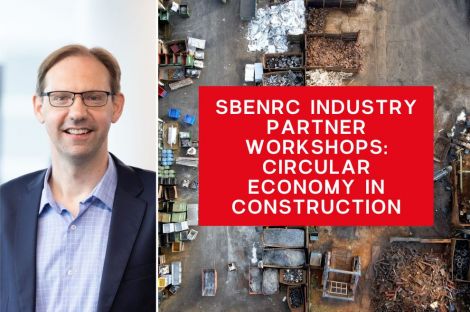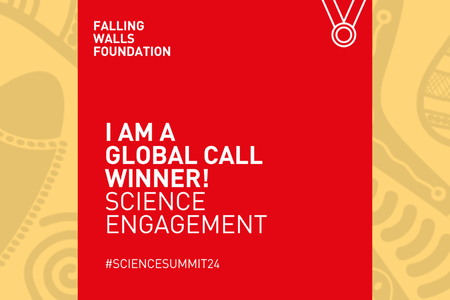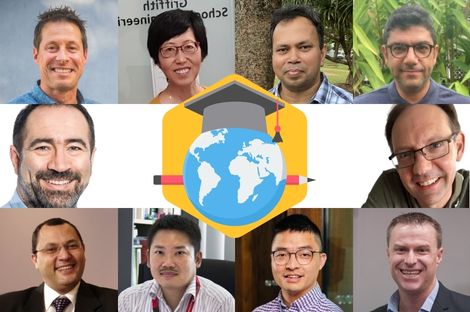We are Australia’s largest research network exploring how human environments function and evolve.
Across the globe, industry and governments are mobilising research leaders to meet the great challenges of our age. As polycrises emerge, Cities Research Institute is an unwavering guide in shaping safe, healthy, connected places where collaboration strengthens communities, and people and the planet thrive.
Incorporating the Coastal and Marine Research Centre, our expertise spans a range of academic disciplines, bringing to bear a strong multidisciplinary research capacity. We conduct quality research in collaboration with government, industry and community that aims to address the complex issues cities and communities face throughout Australasia. In short, we do research that is shaping safe, healthy, connected places.
Academics in Action

Circular economy in construction
September | Luscombe, Queensland and online, Western Australia
Prof Tim Ryley delivered two successful training sessions for construction designers as part of Sustainable Built Environment National Research Centre (SBEnrc) Project 1.95: Using Recycled and Recyclable Products: Influencing Stakeholders through Circular Economy Practices. Project 1.95 identifies strategies to enhance the use of recycled content in construction and explores policy interventions to support circular economy practices.
Tim’s workshops focused on the use of products with recycled content in construction, promoting the integration of circular economy principles into the construction industry. The ATCO Structures workshop was delivered at the Luscombe, SEQ corporate headquarters for 17 attendees in person and online, with a focus on modular housing case studies. The Development WA workshop was an online session for 20 participants, exploring the Hamilton Hill project in Perth.
Each session covered five key topics:
- Understanding the Construction and Demolition (C&D) waste problem
- Sustainability and the circular economy
- C&D waste materials
- The design phase and sustainable construction strategies
- Products with recycled content (PwRC)
These sessions built upon previous SBEnrc projects and featured tailored content for each industry partner. They contribute to Project 1.95’s development of a national training package for construction designers to foster uptake of recycled materials.

Decarbonising the building industry
September | Brisbane South (Nathan)
School of Engineering and Built Environment held the inaugural Decarbonising the Building Industry (DBI) Workshop, themed The Role of Forests in Decarbonising the Construction Industry, at the Brisbane South (Nathan) campus.
In partnership with Responsible Wood and the Researcher Network for Decarbonising the Building Industry (RNDBI), the workshop brought together Griffith researchers and industry experts to explore the potential of forests in reducing the carbon footprint ofconstruction.
CRI’s Prof Hong Guan opened the session with an overview of Griffith’s research efforts in decarbonisation. The workshop featured four insightful presentations:
Simon Dorries (Responsible Wood) on new ISO standards for forest carbon and supply chain traceability.
Bill Leggate (Queensland Government) discussing the opportunities and challenges of Australian forest resources.
Stephen Mitchell (EPD Australasia) on Environmental Product Declarations (EPDs) and their role in sustainable business practices.
Monica Richter (MECLA) addressing the potential of timber in fostering a regenerative future.
Participants then engaged in lively round table discussions, highlighting key areas for further exploration by the Queensland Department of Agriculture and Fisheries.

Accelerating Indonesia’s transition to EVs
August, Indonesia
Our Transport Research Group’s Professor Matthew Burke and Adjunct Professor Bruce James have returned from Jakarta, where they wrapped up the final stages of the Australia Awards - Indonesia Short Course on Accelerating the Transition to Electric Vehicles. The course brought together professionals from Indonesian ministries, government agencies, academia, and the private sector to explore Australia’s policies and expertise in transitioning from internal combustion engines to electric vehicles.
A highlight of the event was a series of presentations where participants showcased their projects and shared innovative ideas for advancing sustainable transportation in Indonesia. The program was further enriched by insights from Deputy Minister H.E. Rachmat Kaimuddin, Coordinating Ministry of Maritime Affairs and Investment.

iKnow, weKnow: Falling Walls Top 20
Melissa Jackson and the project team for the iKnow, weKnow: Co-Designing a Resilient Water and Energy Toolbox for Aboriginal and Torres Strait Island Communities project have been announced as a Top 20 winner in the international Falling Walls Science Engagement category of the Falling Walls Global Call 24, and are now aiming for the Science Breakthrough of the Year! Dr Melissa will be travelling to Berlin for the Science Summit 24 event in November, and is looking forward to networking with professionals and innovators.

Renewed consensus on reef protection: Brooks
August, Australia
Cities Associate Professor Andrew Brooks is among 200 leading experts who contributed to the 2022 Scientific Consensus Statement, the most thorough review to date on how land-based activities affect the Great Barrier Reef’s water quality and ecosystem health. This major work, guided by Australia’s Chief Scientist Dr Cathy Foley and led by C2O Consulting includes ten Griffith authors, with Professor Guillermo Diaz-Pulido, Professor Michele Burford and Andrew himself as lead authors.
Key takeaways from the statement is that gully and stream bank erosion account for a staggering 80% of all sediment reaching the Great Barrier Reef. However, when it comes to riparian management—the efforts to manage river banks to reduce erosion—the evidence is a bit more mixed. While the current management strategies are grounded in solid theory, the specific scientific evidence supporting their effectiveness for the Reef is still developing. Curious to dive deeper? Explore the full statement here.

CRI members Top-Cited Scientists Worldwide
Ten of our researchers have been recognised in the Stanford University 2023 Top-Cited Scientists Worldwide List. This recognition places them among the top 2% of researchers in their respective fields, highlighting the significant impact and quality of their work. Congratulations to Rod Connolly, Hong Guan, Sayed Iftekhar, Hassan Karampour, Sherif Mohamed, Dominic Ong, Tim Ryley, Oz Sahin, Rodney Stewart, and Zhiwei Xu.
Explore our research
Major Research Initiatives
Water, Waste Energy and Food
This effort intends to promote genuine collaboration between major industry stakeholders, applied researchers, and communities in order to produce results that are suitable not just for the purpose at hand, but also for the people involved and the environment in which they will be used. This will capitalise on work that has already been done or that is currently being done.
Co-Leads: Professor Cara Beal and Professor Anne Roiko
Planning for Disaster and Resilience
We will foster resilience in the face of future emergencies and natural disasters by conducting research that leads to practical solutions and planning for resilience. Our transdisciplinary team will collaborate with industry, local government, and communities to address the challenges they face when deciding how to transition their infrastructure and behaviour in the future.
Co-Leads: Professor of Practice Iain MacKenzie and Adjunct Professor Cheryl Desha
Transforming Infrastructure
Our core interests are the re-conceptualisation, re-design, and re-use of existing infrastructure. Our goal is to improve the planning, design, building, operation, and decommissioning of infrastructure, as well as the utilisation of the entire system, in conjunction with our industry partners.
Co-Leads: Professor Matthew Burke and Professor Rodney Stewart
Watch our Research
Local Food Contingency: Building a Community of Practice
This initiative aims to build an emergent and ongoing community of practitioners through an efficient online platform called - Basecamp. In partnership with the Queensland Government’s Office of the Inspector-General Emergency Management (IGEM), our action-research agenda addresses the industry’s identified needs at this time to build capacity for change among the participants, so they might facilitate change in their respective networks for building local food-related disaster resilience. We are working towards a robust spatially-informed database to drive efficient and effective ways of decision-making.
Read the Research most cited by public policy

Research Publication
The future of Blue Carbon science.
This overview provides a comprehensive road map for the coming decades on future research in Blue Carbon science.

Research Publication
Loss and Damage and limits to adaptation: recent IPCC insights and implications for climate science and policy
This article reviews insights derived from recent publications by the Intergovernmental Panel on Climate Change (IPCC) and others, and presents the implications for science and policy.

Research Publication
Associations between green/blue spaces and mental health across 18 countries
Living near, recreating in, and feeling psychologically connected to, the natural world are all associated with better mental health, but many exposure-related questions remain.

Reseach Publication
Is adaptation success a flawed concept?
The measurement of adaptation success remains elusive. Focusing on the capabilities of households and governments to pursue a range of adaptation futures provides a more robust foundation.

Research Publication
Drivers, barriers and enablers to end-of-life management of solar photovoltaic and battery energy storage systems: A systematic literature review.
A conceptual framework is proposed to facilitate the transition of current PV system material flows and supply chain management practices to circular economy concepts.

Research Publication
Quantifying the conservation value of seascape connectivity: A global synthesis.
This paper reviews the published evidence about how important seascape connectivity (i.e. landscape connectivity in the sea) is for marine conservation outcomes.

Research Publication
Global patterns in mangrove soil carbon stocks and losses.
The patterns described through this research serve as a baseline by which countries can assess their mangrove soil C stocks and potential emissions from mangrove deforestation.

Research Publication
Can we manage coastal ecosystems to sequester more blue carbon?
This paper discusses three potential management strategies that hold promise for optimising coastal blue carbon sequestration.
We are proud to acknowledge our government and industry partners
We work with government, business and peak industry bodies, as well as community organisations and researchers from around the world.
If you would like to collaborate with us or contract research consultancy
Cities in Griffith News
Train in vain: The end of the car dependent music festival?
26 Aug 2024
Poor ticket sales, high running costs, insurance premiums, changing consumer preferences, and cost...
Have transport woes dampened iconic music festivals’ spirits?
20 Aug 2024
Findings to explore transport issues and alternatives facing stricken Australian music festivals.
Tents, caravans and mobile homes are used after disasters, so why can’t they be...
11 Jun 2024
There is little doubt Australia is in the midst of a profound housing crisis, one that has been...
From white elephants to a sustainable legacy
29 Feb 2024
The scrutiny of infrastructure planning for the Brisbane 2032 Olympics is intensifying. In...